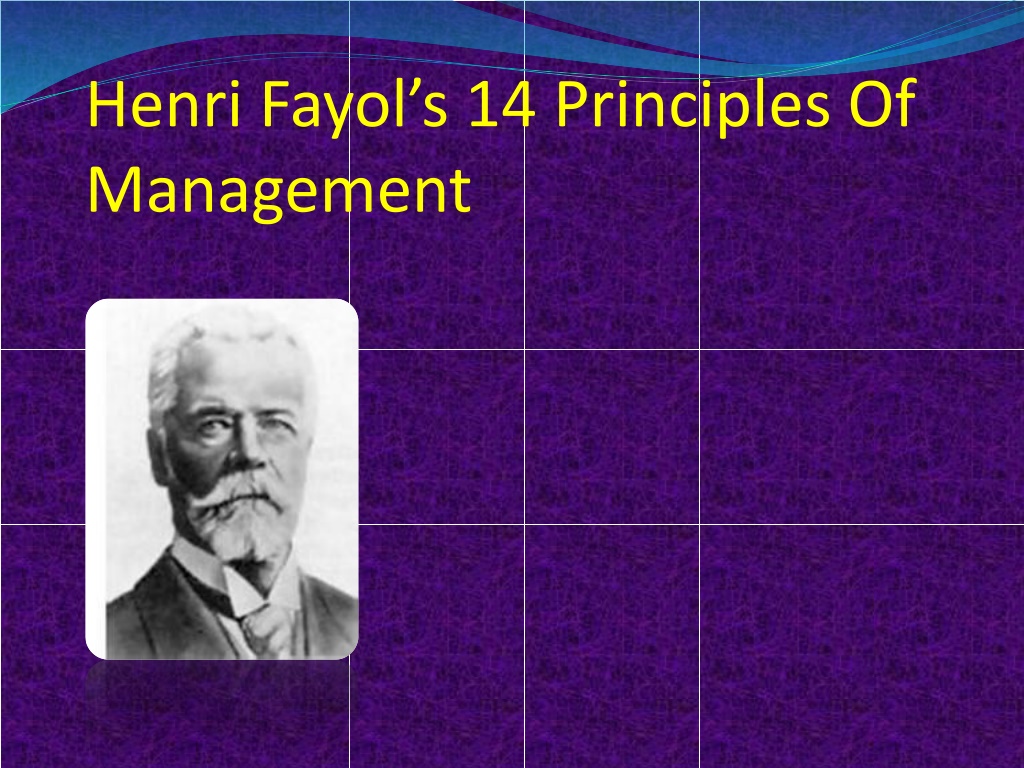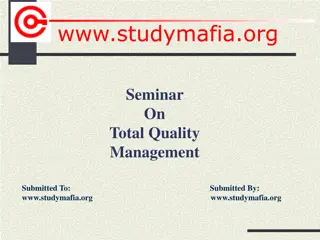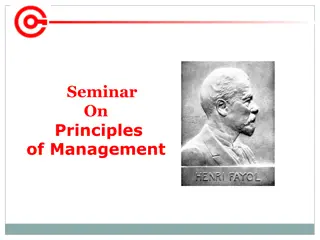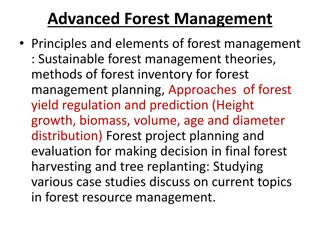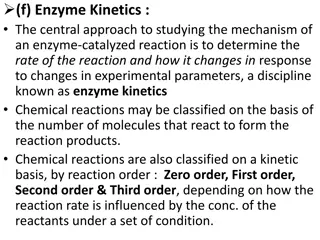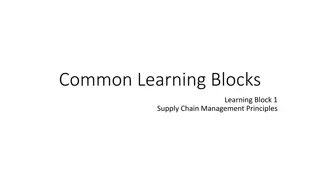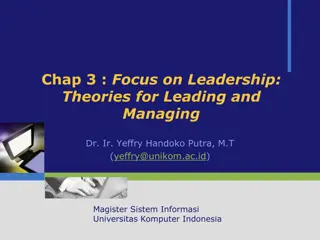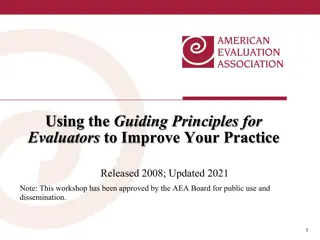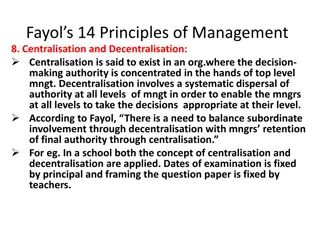Understanding Henri Fayol's 14 Principles of Management
Henri Fayol, the Father of Modern Management, introduced 14 Principles of Management in 1916, outlining essential guidelines for effective management. These principles cover areas such as division of work, authority and responsibility, discipline, unity of command, and unity of direction. By following these principles, managers can enhance organizational efficiency, coordination, and effectiveness.
Download Presentation

Please find below an Image/Link to download the presentation.
The content on the website is provided AS IS for your information and personal use only. It may not be sold, licensed, or shared on other websites without obtaining consent from the author. Download presentation by click this link. If you encounter any issues during the download, it is possible that the publisher has removed the file from their server.
E N D
Presentation Transcript
Henri Fayols 14 Principles Of Management
Introduction Henri Fayol, a French industrialist, is now recognized as the Father of Modern Management. In year 1916 Fayol wrote a book entitled "Industrial and General Administration". In this book, he gave the 14 Principles of Management. These 14 principles of management are universally accepted and used even today. According to Henri Fayol, all managers must follow these 14 principles. Fayol's 14 Principles of Management :-
1. Division Of Work Work should be divided among individuals and groups to ensure that effort and attention are focused on special portions of the task. Fayol presented work specialization as the best way to use the human resources of the organization. Subdivision of work makes it simpler and results in efficiency. It also helps the individual in acquiring speed, accuracy in his performance.
2. Authority & Responsibility The concepts of Authority and responsibility are closely related. Authority was defined by Fayol as the right to give orders and the power to exact obedience. Responsibility involves being accountable, and is therefore naturally associated with authority. Whoever assumes authority also assumes responsibility. There should be a balance between the two i.e. they must go hand in hand. Authority without responsibility leads to irresponsible behavior whereas responsibility without authority makes the person ineffective.
3. Discipline According to Fayol, Discipline means sincerity, obedience, respect of authority & observance of rules and regulations of the enterprise . This principle applies that subordinate should respect their superiors and obey their order. Discipline is not only required on path of subordinates but also on the part of management.
4. Unity Of Command Each worker should have only one boss with no other conflicting lines of command. In other words, a sub-ordinate should not receive instructions from more than one person because - - It undermines authority - Weakens discipline - Creates confusion - Delays the work - Escaping responsibilities - Duplication of work - Overlapping of efforts
5. Unity of Direction The entire organization should be moving towards a common objective in a common direction. People engaged in the same kind of activities must have the same objectives in a single plan. This is essential to ensure unity and coordination in the enterprise. Unity of command does not exist without unity of direction but does not necessarily flows from it.
6. Subordination of individual interests to the general interests The interests of one person should not take priority over the interests of the organization as a whole. In an organization, there are two types of interest, the individual interest of the employees, and the general interest of the organization. The individual interest should be given less importance, while the general interest should be given most importance. If not, the organization will collapse. For example, for change of location of plant, for change of profit sharing ratio, etc.
7. Remuneration Remuneration is the price for services received. If an organization wants efficient employees and best performance, then it should have a good remuneration policy. This policy should give maximum satisfaction to both employer and employees. It should include both financial and non-financial incentives (free education, insurance, medical & residential facilities).
8. Centralization (Or Decentralization) Centralization means concentration of authority at the top level. In other words, centralization is a situation in which top management retains most of the decision making authority. Decentralization means disposal of decision making authority to all the levels of the organization. In other words, sharing authority downwards is decentralization. According to Fayol, Degree of centralization or decentralization depends on no: of factors like size of business, experience of superiors, dependability & ability of subordinates etc. Anything which increases the role of subordinate is decentralization & anything which decreases it is centralization. Fayol suggested that absolute centralization or decentralization is not feasible. An organization should strike to achieve a lot between the two.
9. Scalar chain (Line of Authority) Scalar Chain is a line of authority. This line joins all the members (managers and employees) from top to bottom. Every member must know who his superior is. He must also know who his subordinate is. Scalar Chain is necessary for good communication. Scalar Chain must not be broken in norm circumstances. However, if quick action is necessary, then this chain can be broken. This is done using "Gang Plank"
Gang Plank AGang Plank is a temporary arrangement between two different points to facilitate quick & easy communication as explained below: In the figure given, if F has to communicate with P he will first send the communication upwards with the help of E, D, C, B to A and then downwards with the help of L, M, N and O to G which will take quite some time and by that time, it may not be worth therefore a gang plank has been developed between the two.
10. Order There should be an Order for Things and People in the organization. Order for things is called Material Order. Order for people is called Social Order. Material Order refers to "a place for everything and everything in its place." Social Order refers to the selection of the "right man in the right place". There must be orderly placement of the resources such as Men and Women, Money, Materials, etc. Misplacement will lead to misuse and disorder.
11. Equity The employees should be treated with fairness, kindness & justice if devotion is expected of them. It implies that managers should be fair and impartial while dealing with the subordinates. They should give similar treatment to people of similar position. They should not discriminate with respect to age, caste, sex, religion, relation etc. Equity is essential to create and maintain cordial relations between the managers and sub-ordinate. But equity does not mean total absence of harshness. Fayol was of opinion that, at times force and harshness might become necessary for the sake of equity .
12. Stability of Tenure of Personnel Employees work better if job security and career progress are assured to them. An insecure tenure and a high rate of employee turnover will affect the organization adversely According to Fayol. Time is required for an employee to get used to a new work & succeed to doing it well but if he is removed before that he will not be able to render worthwhile services . As a result, the time, effort and money spent on training the worker will go waste. Stability of job creates team spirit and a sense of belongingness among workers which ultimately increase the quality as well as quantity of work.
13. Initiative Management should encourage initiative. That is, they should encourage the employees to suggest ideas, experiences& new method of work. It helps in developing an atmosphere of trust and understanding It creates eagerness to initiate actions without being asked to do so.
14. Esprit de Corps Management must foster the morale of its employees. He further suggests that: real talent is needed to coordinate effort, encourage keenness, use each person s abilities, and reward each one s merit without arousing possible jealousies and disturbing harmonious relations. Here Fayol emphasizes the need for building and maintaining of harmony among the work force , team work and sound interpersonal relationships.
Conclusion As we all know that a building cannot attain stability without proper foundation, an organization also cannot be stable in its long run and achieve its long term goals without following these 14 principles of management. Organization and these principles are like complimentary goods which completes each other, one is useless without the other. Like car & petrol.
